
Susana Coelho
Max Planck Institute for Biology Tübingen
Germany
EMBO Practical Course
Studying organisms in their original context and environment is one of the current grand challenges in the life sciences and a central goal of modern Developmental Biology. The interactions between organisms, and their chemical, physical and biotic environments have important consequences at the level of form, physiology and behaviour. To gain an understanding and uncover mechanistic links between these interconnected and dynamic processes, novel, interdisciplinary approaches and cutting-edge technologies are needed. The aim of this course is to expose and introduce graduate students and postdoctoral fellows to fundamental questions and challenges related to the study of how the dynamic interplay between organisms and their changing environment impacts developmental processes and evolutionary novelty. The participating students will benefit from a well-balanced curriculum with lectures and hands-on practicals. We invite external keynote speakers each day of the course, covering different topics related to how environmental factors control development, physiology, and behaviours, and emphasising developmental plasticity, timing, and metabolism. Each afternoon, EMBL groups will run lab practicals in a wide range of organisms (i.e., bacterial colonies+Dictyostelium, algae, plants, Nematostella, worms, flies, vertebrates). Most experiments will be centered around the common theme of ‘Organisms interacting with their environment’.
This course is intended for graduate students and post-doctoral fellows with a STEM background. We aim to balance the number of participants with hands-on experience and theoretical background.
The course will provide:
1 ) an introduction to modern developmental biology questions covering a broad spectrum of developing systems
2) hands-on experiments and data analysis in a variety of model and non-model organisms.
.
Please see EMBL’s COVID-19 safety policy for testing and other requirements to attend this on-site course.

Max Planck Institute for Biology Tübingen
Germany
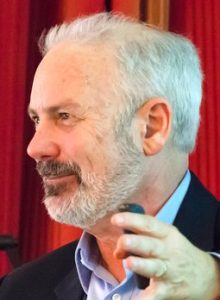
Swarthmore College
USA
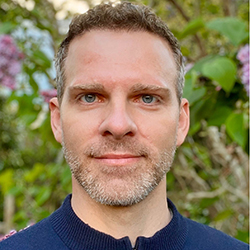
University of Cambridge
UK
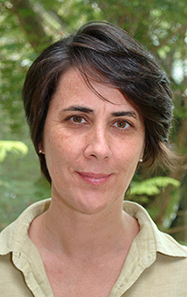
National University of Singapore
Singapore
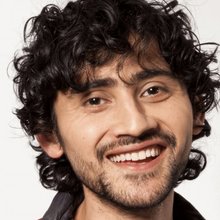
Stanford University
USA
Max Planck Institute of Molecular Cell Biology and Genetics
Germany
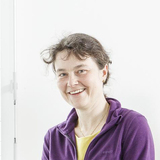
Max Perutz Labs Vienna, Austria; Alfred Wegener Institute, Helmholtz Centre for Polar and Marine Research and Carl-von-Ossietzky University, Germany
EMBL Heidelberg
Germany
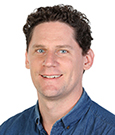
EMBL Heidelberg
Germany
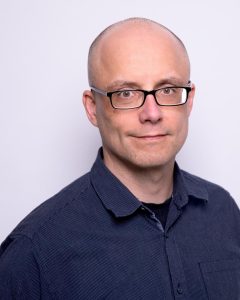
Heidelberg University
Germany
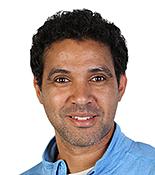
EMBL Heidelberg
Germany
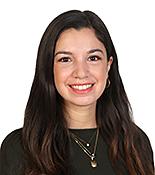
EMBL Heidelberg
Germany
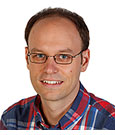
EMBL Heidelberg
Germany

EMBL Heidelberg
Germany
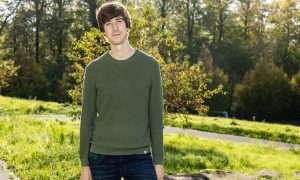
EMBL Heidelberg
Germany
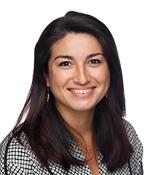
EMBL Heidelberg
Germany
| Lab | People |
|---|---|
| Aulehla | Sapna Chhabra – EMBL Heidelberg, Germany Simon Knoblich – EMBL Heidelberg, Germany |
| Crocker | Lautaro Gandara – EMBL Heidelberg, Germany Nikolaus Vlachopoulos – EMBL Heidelberg, Germany |
| Greb | Pascal Hunziker – Heidelberg University, Germany Kiara Kaeufer – Heidelberg University, Germany Jiao Zhao – Heidelberg University, Germany |
| Ikmi | Florian Gabler – EMBL Heidelberg, Germany Levin Riedel – EMBL Heidelberg, Germany |
| Petridou | Cristina Pallares Cartes – EMBL Heidelberg, Germany Camilla Autorino – EMBL Heidelberg, Germany Laura Rustarazo-Calvo – EMBL Heidelberg, Germany Magdalena Schindler – EMBL Heidelberg, Germany |
| Prevedel/Zimmermann | Samuel Davis – EMBL Heidelberg, Germany Rory Power – EMBL Heidelberg, Germany |
| Rapti | Francesca Caroti – EMBL Heidelberg, Germany Laura Sabou – EMBL Heidelberg, Germany |
| van Gestel | Mireia Garriga-Canut – EMBL Heidelberg, Germany Andrea Zanon – EMBL Heidelberg, Germany |
| Vincent | Kevin Moog – EMBL Heidelberg, Germany Thomas Beavis – EMBL Heidelberg, Germany Moritz Winker – EMBL Heidelberg, Germany Soraya Zwahlen – EMBL Heidelberg, Germany |
| Vu | Kristina Mirkes – EMBL Heidelberg, Germany Ana Mellado Fuentes – EMBL Heidelberg, Germany Amrutha Palavalli – EMBL Heidelberg, Germany Gaurav Vaidya – EMBL Heidelberg, Germany |
| DB unit / Microscopy support | Matt Benton |
EMBL Heidelberg
Germany

EMBL Heidelberg
Germany
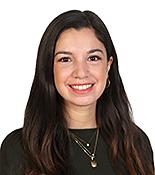
EMBL Heidelberg
Germany
Got something to say? Tweet it! #EMBOPlasticity
| Time (Europe/Berlin) | Speaker | Location |
|---|---|---|
| 08:40 | Bus from ISG Hotel to EMBL Operon entrance | ISG Hotel bus stop |
| 09:00 – 09:30 | Welcome, house notes and safety instructions | Large Operon |
| 09:30 – 10:30 | Networking activity | Large Operon |
| 10:30 – 11:00 | Coffee Break | Operon Foyer |
| 11:00 – 12:00 | Introduction to practical 1 Jordi van Gestel – EMBL Heidelberg, Germany | Large Operon |
| 12:00 – 13:00 | Lunch | EMBL Canteen |
| 13:00 – 14:00 | Field trip to collect samples | Depart Operon Foyer |
| 14:00 – 17:00 | Practical 1: Studying collective behaviors of soil-derived Dictyostelium and Bacilli species Jordi van Gestel and members of his lab – EMBL Heidelberg, Germany | Training Lab B |
| 17:00 – 18:00 | Keynote Lecture 1: Environment and the origins of complex behaviour in biological systems Manu Prakash – Stanford University, USA | Large Operon |
| 16:00 – 19:00 | Networking: Meet the speaker with Manu Prakash – Stanford University, USA | Operon Foyer |
| 19:00 – 20:00 | Dinner | EMBL Canteen |
| 20:00 – 22:00 | Poster session 1 | Operon Foyer |
| 22:00 | Departure to ISG Hotel and end of Day 1 | ATC entrance |
| Time (Europe/Berlin) | Speaker | Location |
|---|---|---|
| 09:15 | Bus from ISG to EMBL | ISG Hotel bus stop |
| 09:30 – 09:35 | Overview of the day | Courtyard A( |
| 09:35 – 10:30 | Keynote Lecture 2: The developmental biology of holobionts Scott Gilbert – Swarthmore College, USA | Large Operon |
| 10:30 – 11:00 | Coffee break | Operon Foyer |
| 11:00 – 12:00 | Networking: Meet the speaker Scott Gilbert – Swarthmore College, USA | Operon Foyer |
| 12:00 – 13:00 | Lunch | EMBL Canteen |
| 13:00 – 14:00 | Introduction to practical 2 Flora Vincent – EMBL Heidelberg, Germany | Courtyard Room A & B |
| 14:00 – 18:00 | Practical 2: Single-cell sorting of diatom symbiosis from the natural environment Flora Vincent and members of her lab – EMBL Heidelberg, Germany | Training Lab B |
| 18:00 – 19:00 | Dinner | EMBL Canteen |
| 19:00 – 21:00 | Poster session 2 | Operon Foyer |
| 21:00 | Departure to ISG Hotel and end of Day 2 | ATC entrance |
| Time (Europe/Berlin) | Speaker | Location |
|---|---|---|
| 09:15 | Bus from the ISG Hotel to EMBL | ISG Hotel bus stop |
| 09:30 – 09:35 | Overview of the day | Large Operon |
| 09:35 – 10:30 | Keynote Lecture 3: Evolution of a mechanism of plasticity in eyespot wing patterns Antonia Monteiro – National University of Singapore, Singapore | Large Operon |
| 10:30 – 11:00 | Coffee break | Operon Foyer |
| 11:00 – 12:00 | Networking: Meet the speaker with Antonia Monteiro – National University of Singapore, Singapore | Large Operon |
| 12:00 – 13:00 | Lunch | EMBL Canteen |
| 13:00 – 14:00 | Introduction to practical 3 Justin Crocker – EMBL Heidelberg, Germany | Courtyard Room A & B |
| 14:00 – 18:00 | Practical 3: Exploring animal development and evolution with synthetic biology in Drosophila Melanogaster Justin Crocker and members of his lab – EMBL Heidelberg, Germany | Training Lab B |
| 18:00 – 19:00 | Dinner | EMBL Canteen |
| 19:00 | Continued networking | Operon Foyer |
| 19:45 | Departure to ISG Hotel, end of Day 4 | ATC entrance |
| Time (Europe/Berlin) | Speaker | Location |
|---|---|---|
| 09:15 | Bus from the ISG Hotel to EMBL | ISG Hotel bus stop |
| 09:30 – 09:35 | Overview of the day | Large Operon |
| 09:35 – 10:30 | Keynote Lecture 4: The effect of variation in light in the biological processes Kristin Tessmar – Max Perutz Labs Vienna, Austria | Large Operon |
| 10:30 – 11:00 | Coffee Break | Operon Foyer |
| 11:00 – 12:00 | Networking: Meet the speaker with Kristin Tessmar – Max Perutz Labs Vienna, Austria | Large Operon |
| 12:00 – 13:00 | Lunch | EMBL Canteen |
| 13:00 – 14:00 | Introduction to practical 4 Hanh Vu – EMBL Heidelberg, Germany | Large Operon |
| 14:00 – 18:00 | Practical 4: Phenotypic plasticity of the planarian flatworms Hanh Vu and members of her lab – EMBL Heidelberg, Germany | Training Lab B |
| 18:00 – 19:00 | Dinner | |
| 19:00 – 21:00 | Round Table discussion: Responsible conduct of research | ATC Rooftop Lounge |
| 21:00 | Departure to ISG Hotel, end of Day 4 | ATC entrance |
| Time (Europe/Berlin) | Speaker | Location |
|---|---|---|
| 08:40 | Bus from the ISG Hotel to EMBL | ISG Hotel bus stop |
| 09:00 – 09:05 | Overview of the day | Courtyard Room A & B |
| 09:05 – 10:00 | Introduction to practical 5 Nicoletta Petridou – EMBL Heidelberg, Germany | Courtyard Room A & B |
| 10:00 – 12:00 | Practical 5 part 1: Biophysical properties of embryonic tissues in Zebrafish Nicoletta Petridou and members of her lab – EMBL Heidelberg | Training Lab B |
| 12:00 – 13:00 | Lunch | EMBL Canteen |
| 13:00 – 18:00 | Practical 5 part 2: Biophysical properties of embryonic tissues in Zebrafish Nicoletta Petridou and members of her lab – EMBL Heidelberg | Training Lab B |
| 18:00 – 19:00 | Dinner | |
| 19:00 – 21:00 | Data analysis practical 5 | Computer Training Lab |
| 21:00 | Departure to ISG Hotel, end of Day 5 | ATC entrance |
| Time (Europe/Berlin) | Speaker | Location |
|---|---|---|
| 09:15 | Bus from ISG to EMBL | ISG Hotel bus stop |
| 09:30 – 09:35 | Overview of the day | Large Operon |
| 09:35 – 10:30 | Keynote Lecture 5: The energetic cost of early development in their environment Jonathan Rodenfels – Max Planck Institute of Molecular Cell Biology and Genetics, Germany | Large Operon |
| 10:30 – 11:00 | Coffee break | Operon Foyer |
| 11:00 – 12:00 | Networking: Meet the speaker with Jonathan Rodenfels – Max Planck Institute of Molecular Cell Biology and Genetics, Germany | Operon Foyer |
| 12:00 – 13:00 | Lunch | EMBL Canteen |
| 13:00 – 14:00 | Introduction to practical 6 Alexander Aulehla – EMBL Heidelberg, Germany Aissam Ikmi – EMBL Heidelberg, Germany | Courtyard Room A & B |
| 14:00 – 18:00 | Practical 6: Metabolic control of developmental timing Alexander Aulehla and members of his lab – EMBL Heidelberg, Germany Aissam Ikmi and members of his lab – EMBL Heidelberg, Germany | Training Lab B |
| 18:00 – 19:00 | Dinner | EMBL Canteen |
| 19:00 – 19:45 | Continued networking | Operon Foyer |
| 19:45 | Departure to ISG Hotel, end of Day 6 | ATC entrance |
| Free Day |
| Time (Europe/Berlin) | Speaker | Location |
|---|---|---|
| 09:15 | Bus from the ISG Hotel to EMBL | ISG Hotel bus stop |
| 09:30 – 09:35 | Overview of the day | Large Operon |
| 09:35 – 10:30 | Keynote Lecture 6: The life cycle and reproduction of brown algae Susana Coehlo, Max Planck Institute for Biology Tübingen | Large Operon |
| 10:30 – 11:00 | Coffee Break | Operon Foyer |
| 11:00 – 12:00 | Networking: Meet the speaker with Susana Coehlo, Max Planck Institute for Biology Tübingen | Large Operon |
| 12:00 – 13:00 | Lunch | EMBL Canteen |
| 13:00 – 14:00 | Introduction to practical 7 Georgia Rapti – EMBL Heidelberg, Germany | Courtyard Room A & B |
| 14:00 – 18:00 | Practical 7: Molecular dissection of brain pioneer cell morphogenesis in C. Elegans Georgia Rapti and members of her lab – EMBL Heidelberg, Germany | Training Lab B |
| 18:00 – 19:00 | Dinner | EMBL Canteen |
| 19:00 – 19:45 | Continued networking | Operon Foyer |
| 19:45 | Departure to ISG Hotel, end of Day 8 | ATC entrance |
| Time (Europe/Berlin) | Speaker | Location |
|---|---|---|
| 09:15 | Bus from the ISG Hotel to EMBL | ISG Hotel bus stop |
| 09:30 – 09:35 | Overview of the day | Computer Training Lab |
| 09:35 – 10:30 | Data Analysis Practical 6, 7 | Computer Training Lab |
| 10:30 – 11:00 | Coffee Break | Operon Foyer |
| 11:00 – 12:00 | Data Analysis Practical 6, 7 | Computer Training Lab |
| 12:00 – 13:00 | Lunch | EMBL Canteen |
| 13:00 – 14:00 | Introduction to practical 8 Robert Prevedel – EMBL Heidelberg, Germany | Courtyard Room A & B |
| 14:00 – 18:00 | Practical 8: 4D imaging of development Robert Prevedel and Timo Zimmermann – EMBL Heidelberg, Germany | Training Lab B |
| 18:00 – 19:00 | Dinner | |
| 19:00 – 21:00 | Round Table discussion: Responsible conduct of research | ATC Rooftop Lounge |
| 21:00 | Departure to ISG Hotel, end of Day 9 | ATC entrance |
| Time (Europe/Berlin) | Speaker | Location |
|---|---|---|
| 09:15 | Bus from the ISG Hotel to EMBL | ISG Hotel bus stop |
| 09:30 – 09:35 | Overview of the day | Large Operon |
| 09:35 – 10:30 | Keynote Lecture 7: Plant development and physiology Alexander Jones – University of Cambridge, UK | Large Operon |
| 10:30 – 11:00 | Coffee break | Operon Foyer |
| 11:00 – 12:00 | Networking: Meet the speaker with Alexander Jones – University of Cambridge, UK | Large Operon |
| 12:00 – 13:00 | Lunch | EMBL Canteen |
| 13:00 – 14:00 | Introduction to practical 9 Thomas Greb – Centre for Organismal Studies, Uni Heidelberg, Heidelberg | Courtyard Room A & B |
| 14:00 – 18:00 | Practical 9: Plant development and physiology Thomas Greb and member of his lab – Centre for Organismal Studies, Uni Heidelberg, Heidelberg | Training Lab B |
| 18:00 – 19:00 | Dinner | |
| 19:00 – 21:00 | Group activity: Data analysis of practicals 9 | Computer Training Lab |
| 21:00 | Departure to ISG Hotel, end of Day 10 | ATC entrance |
| Time (Europe/Berlin) | Speaker | Location |
|---|---|---|
| 09:15 | Bus from the ISG Hotel to EMBL | ISG Hotel bus stop |
| 09:30 – 09:35 | Overview of the day | Courtyard Room A & B |
| 09:35 – 10:30 | Follow up on the field trip samples | Courtyard Room A & B |
| 10:30 – 11:00 | Coffee Break | Courtyard Room A & B |
| 11:00 – 12:00 | Time to prepare the presentation | Courtyard Room A & B |
| 12:00 – 13:00 | Lunch | EMBL Canteen |
| 13:00 – 15:00 | Time to prepare the presentations | Courtyard Room A & B |
| 15:00 – 15:30 | Coffee Break | Courtyard Room A & B |
| 15:30 – 17:30 | Presentations by the participants | Large Operon |
| 18:00 – 22:00 | BBQ and Party | Operon Foyer and Terrace |
| 22:00 | Departure to ISG Hotel, end of Day 11 | ATC entrance |
| Time (Europe/Berlin) | Speaker | Location |
|---|---|---|
| 09:15 | Bus from the ISG Hotel to EMBL | ISG Hotel bus stop |
| 09:30 – 09:35 | Overview of the day | Large Operon |
| 09:35 – 10:30 | Final remarks | Large Operon |
| 10:30 – 11:00 | Coffee break | Operon Foyer |
| 11:00 – 12:00 | Closing: wrap up and feedback session | Large Operon |
| 12:00 – 13:00 | Lunch | EMBL Canteen |
| 13:00 | Departure | ATC entrance |
The course is limited to 20 participants. For selection purposes, please note that your application will not be considered without a letter of motivation.
Registration fees include admission, course materials, COVID-19 safety measures, meals and coffee breaks. This EMBO course includes accommodation and transportation to and from the ISG Hotel to the venue.
| Academia | €500 |
| PhD Student | €500 |
| Industry | €1200 |
A letter to support your visa application will be issued, on request, once payment of the registration fee is confirmed. We recommend that you book your visa appointment as soon as possible, to avoid any delay with your visa application.
The registration fee should be paid only after acceptance to the course. The results will be announced approximately 2-3 weeks after the application deadline.
After you have logged in and successfully registered, you will receive an email asking you to submit your motivation letter. Click on the link provided and enter your motivation letter in the text box provided. Alternatively you can submit your motivation letter by clicking on the link on the confirmation page directly after registering.
Instructions
Please note:
For detailed instructions, please watch our video on how to submit a course motivation letter.
For further information about registration and motivation letter submission please refer to the FAQ page.
Limited financial assistance is provided by the EMBL Advanced Training Centre Corporate Partnership Programme and EMBO in the form of both registration fee waivers and travel grants. Availability is limited to participants attending on-site EMBL Courses and virtual or on-site EMBO Practical Courses in Heidelberg, and will be indicated during the motivation letter submission process.
Your place in the course is only confirmed by paying the registration fee, which is mandatory even when receiving a fee waiver.
The fee waiver will cover the registration sum that you have paid to attend the course.
The travel grant will cover the cost of travel (airfare, train, bus, taxi, accommodation, visa, and/or registration fees*) and is provided up to specified caps which are normally as follows:
– up to €400 for participants travelling to an EMBL Course within Europe.
– up to €1000 for participants travelling to an EMBL Course from outside Europe.
– up to €500 for any participant travelling to an EMBO Practical Course.
– up to €1000 for any participant working in Chile, India, Singapore or Taiwan travelling to an EMBO Practical Course.
– up to €700 for any participant working in Croatia, Czech Republic, Estonia, Greece, Hungary, Italy, Lithuania, Luxembourg, Poland, Slovenia, and Turkey travelling to an EMBO Practical Course.
*Registration fees are only covered for EMBO Practical Courses
The organisers may reduce the grant cap to accommodate more participants. Recipients will be notified of their travel cap amount when they are informed of the outcome of their application. Original receipts must be provided with your signature for all costs incurred within two months of completion of travel. Scanned copies cannot be accepted.
For EMBO Practical Course participants with children, there is the possibility to apply for a childcare grant to offset child care costs incurred by participants or speakers when participating at a course. Eligible costs include fees for a babysitter or child-care facility, travel costs for a caregiver, or travel costs for taking the child to the meeting etc. Please note that priority will be given to early-stage researchers. A maximum amount of €500 can be awarded per participant applying for an EMBO childcare grant.
Applies to selected courses only. Availability will be indicated during the motivation letter submission process.
This grant covers costs related to your attendance at the course (registration, travel and accommodation costs). The grant is restricted to PhD students and postdocs who conduct basic biomedical research.
Whether you are eligible to apply for a travel grant, depends on when you received your university entrance qualification (e.g. Abitur, A-Levels, High School Diploma, Final State Examination):
– for PhD and MD students, as well as graduates, the university entrance qualification must not have been obtained more than 11 years ago at the time of the envisaged course
– for postdocs, the university entrance qualification must not have been obtained more than 13 years ago at the time of the envisaged course
You may apply for financial assistance when submitting your motivation letter for courses. In your application, you will be asked to answer questions regarding why your lab cannot fund your attendance and how your attendance will make a difference to your career. Application for financial support will not affect the outcome of your registration application.
For the Boehringer Ingelheim Fonds Travel Grant, there is a pre-application question during the motivation letter submission process, and if selected you will be requested to complete a standard form and documentation consisting of your travel expense estimation.
The scientific organisers will select the recipients of all financial assistance during the motivation letter selection process. Results will be announced approximately 6-8 weeks before the event start date, however for some events this may be delayed. Selection results do not impact your admission to the course. Selection is based on scientific merit, your current work or study location, the reasons for needing financial support, and the impact this event will have on your career.
Costs will be reimbursed after the meeting only once a reimbursement form and original receipts (from travel costs) have been received.
See our list of external funding opportunities and for further information about financial assistance please refer to the FAQ page.
Accommodation has been pre-booked for you at the ISG Hotel for the default dates of Sunday 23 July to 4 August (12 nights). Please note that the course registration fee includes coverage of accommodation costs in twin rooms, including breakfasts, for your stay at the ISG. In case you would like to have a single room, please let us know and please note that you will be required to pay an additional cost of 24€ per night. This should be paid by you directly to the ISG during your stay. Any additional nights need to be booked and paid for by you. We recommend that all course participants stay at the ISG Hotel which is the dedicated hotel for the course.
Shuttle buses will go from the ISG Hotel to EMBL and back, mornings and evenings. A bus schedule and location of the bus stops will be made available prior to the meeting.
Address: EMBL Heidelberg, Meyerhofstraße 1, 69117 Heidelberg, Germany
For further information on getting to EMBL Heidelberg visit our Travel Information page.
For enquiries about accommodation and local transportation please refer to the FAQ page.
The EMBL eCampus learning platform will be used to collaborate, communicate and network with all of the course participants. All participants will receive information on how to join shortly before the course. We recommend using Chrome, Safari or Mozilla Firefox browsers for eCampus.
Please find additional information including FAQs, terms and conditions, COVID-19 safety policy and travelling to EMBL on our Information for Participants page.
COVID-19 information for on-site events at EMBL Heidelberg can be found in our COVID-19 FAQs.
Event Sponsor
Event Supporter
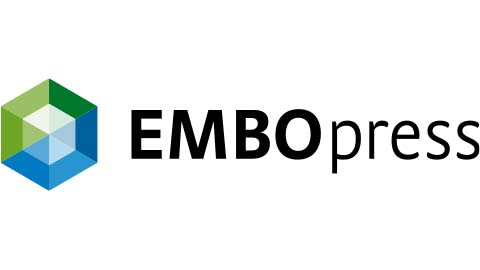
Sponsorship opportunities
We offer a variety of event sponsoring possibilities, with the flexibility to select a set sponsorship package or combine individual sponsorship options to suit your event budget. Discounts are available for companies sponsoring multiple events at EMBL Heidelberg. View other events, or contact sponsorship@embl.de for further information.
If you are interested in becoming a media partner of this event, please visit our media partnerships webpage.
EMBL wishes to warn sponsors of EMBL conferences and courses of fraudulent schemes purporting to offer sponsorship opportunities on behalf of EMBL or affiliated with EMBL officials. One current scam campaign of which we are aware is conducted using the name ‘Judy Eastman’ (judy@gopcontact.a2hosted.com) and entails approaches to sponsors offering sponsorship opportunities on EMBL’s behalf. Please be kindly advised that all relevant communication regarding sponsorship of EMBL conferences, symposia and courses is handled by EMBL directly and is sent from an official EMBL account. EMBL does not work with any external providers on sponsorship acquisition.
Please also note that:
Suspicious communications purportedly from, for or on behalf of EMBL should be reported to EMBL at the following email address sponsorship@embl.de.
Want to let others know you’re attending this event? Take a look at our shareable media and feel free to use them in your social media channels or presentations.
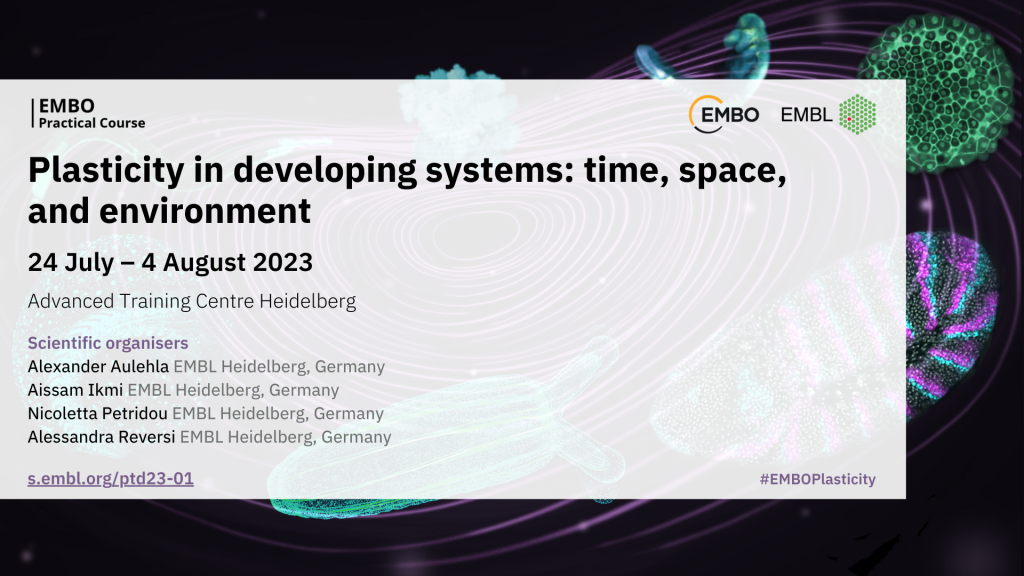

Date: 24 Jul - 4 Aug 2023
Location: EMBL Heidelberg
Venue: EMBL Advanced Training Centre
Deadline(s):
Application: Closed
Organisers:
Contact: Nathalie Sneider